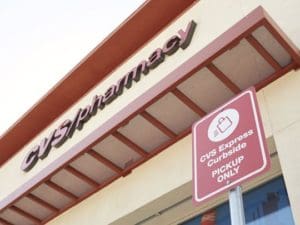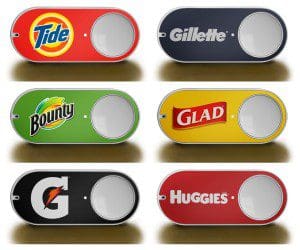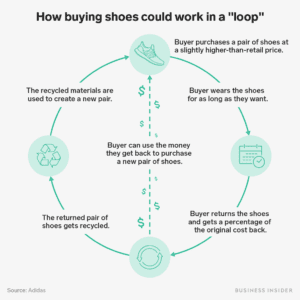 It’s nice to be back bringing you the logistics news round-up again. My colleagues took over for me the last two Fridays as I was on vacation exploring Ireland and Northern Ireland. It was such an amazing trip on so many levels. First there was the family aspect. I saw family I hadn’t seen in years, watched my kids meet and play with new cousins, visited the house where my father, grandfather, and most likely my great-grandfather, were all born, and enjoyed the epitome of Irish hospitality. Second was the tourist aspect. We took a bus tour of Dublin, a private coach tour of Northern Ireland where we saw the peace murals in Belfast and the Giant’s Causeway up north, saw many an Irish band in many a pub while enjoying many a Guinness, took a boat tour around the cliffs of Moher, and took a horse and trap ride through the Gap of Dunloe. And third was the great outdoors aspect. We hiked the Cliffs of Moher cliff walk, explored Killarney National Park, and took a surfing lesson – my kids were actually surfing within 10 minutes; my wife and I, however, were not. I feel like we explored about as much of the island as we could in two weeks, but I could have spent a few months there easily. And now on to this week’s logistics news.
It’s nice to be back bringing you the logistics news round-up again. My colleagues took over for me the last two Fridays as I was on vacation exploring Ireland and Northern Ireland. It was such an amazing trip on so many levels. First there was the family aspect. I saw family I hadn’t seen in years, watched my kids meet and play with new cousins, visited the house where my father, grandfather, and most likely my great-grandfather, were all born, and enjoyed the epitome of Irish hospitality. Second was the tourist aspect. We took a bus tour of Dublin, a private coach tour of Northern Ireland where we saw the peace murals in Belfast and the Giant’s Causeway up north, saw many an Irish band in many a pub while enjoying many a Guinness, took a boat tour around the cliffs of Moher, and took a horse and trap ride through the Gap of Dunloe. And third was the great outdoors aspect. We hiked the Cliffs of Moher cliff walk, explored Killarney National Park, and took a surfing lesson – my kids were actually surfing within 10 minutes; my wife and I, however, were not. I feel like we explored about as much of the island as we could in two weeks, but I could have spent a few months there easily. And now on to this week’s logistics news.
- CVS targets millennials with Amazon-like membership
- Amazon to kill the Dash button
- FedEx to end ground deliveries for Amazon
- Trump doubles down on China trade war
- Shake Shack taps Grubhub for nationwide delivery
- Adidas leads the charge in sustainable footwear
- IBM’s latest blockchain product aims to simplify supplier networks
 Last year, in an effort to compete with Amazon in the e-commerce arena, CVS launched a subscription-based delivery service named CarePass. The program gives members free home delivery on products ranging from shampoo to medication for a yearly fee of $48. Consumers can also opt to pay $5 a month for the service. CVS tested the program in Boston, Philadelphia, and Tampa, and saw positive results. Now, the company is rolling out CarePass nationwide. Along with free home delivery, members receive discounts on CVS-branded items, a monthly $10 coupon, and access to a pharmacy hotline. The pilot revealed that 20 percent of members were born between 1981 and 1996, which is a key demographic for home delivery services. While the majority of sales still take place in a physical CVS store, the company indicated that CarePass members spent 15% to 20% more at CVS
Last year, in an effort to compete with Amazon in the e-commerce arena, CVS launched a subscription-based delivery service named CarePass. The program gives members free home delivery on products ranging from shampoo to medication for a yearly fee of $48. Consumers can also opt to pay $5 a month for the service. CVS tested the program in Boston, Philadelphia, and Tampa, and saw positive results. Now, the company is rolling out CarePass nationwide. Along with free home delivery, members receive discounts on CVS-branded items, a monthly $10 coupon, and access to a pharmacy hotline. The pilot revealed that 20 percent of members were born between 1981 and 1996, which is a key demographic for home delivery services. While the majority of sales still take place in a physical CVS store, the company indicated that CarePass members spent 15% to 20% more at CVS
 Amazon has officially killed off one of its more interesting products – the Dash button. The Dash button is a small wireless device about the size of a pack of gum. When a customer presses the button, the device uses Wi-Fi to order items the customer has pre-selected from Amazon. The idea was to have one for each product that one might order a lot, such as condiments or detergents. Well, at the end of the month, the Dash button will be no more. However, the Dash button will live on in 2D form, as customers can create and organize virtual Dash buttons on the Amazon app, webpage, Echo, or even some smart refrigerators. Amazon has automatically created virtual dash buttons for customers who had physical ones.
Amazon has officially killed off one of its more interesting products – the Dash button. The Dash button is a small wireless device about the size of a pack of gum. When a customer presses the button, the device uses Wi-Fi to order items the customer has pre-selected from Amazon. The idea was to have one for each product that one might order a lot, such as condiments or detergents. Well, at the end of the month, the Dash button will be no more. However, the Dash button will live on in 2D form, as customers can create and organize virtual Dash buttons on the Amazon app, webpage, Echo, or even some smart refrigerators. Amazon has automatically created virtual dash buttons for customers who had physical ones.
 FedEx has decided to cut more ties with Amazon. Earlier this summer, FedEx announced it would not renew its FedEx Express contract with Amazon. FedEx Express is FedEx’s air service that moves packages from one airhub to another. Now the company is ending its contract to make ground deliveries for Amazon. This is just the latest move that shows the divide between the companies, especially as Amazon continues to grow its logistics network. The decision to end its relationship with Amazon should help to carry favor with other retailers in the e-commerce space. FedEx will still continue to provide Amazon with air shipments internationally.
FedEx has decided to cut more ties with Amazon. Earlier this summer, FedEx announced it would not renew its FedEx Express contract with Amazon. FedEx Express is FedEx’s air service that moves packages from one airhub to another. Now the company is ending its contract to make ground deliveries for Amazon. This is just the latest move that shows the divide between the companies, especially as Amazon continues to grow its logistics network. The decision to end its relationship with Amazon should help to carry favor with other retailers in the e-commerce space. FedEx will still continue to provide Amazon with air shipments internationally.
 President Trump is escalating the trade war with China once again. In his latest announcement, Trump has threatened another round of tariffs of 10 percent on the remaining $300 billion in Chinese goods that are not yet subject to punitive tariffs. As a result, China has announced that it is pulling out of US agriculture. A spokesperson for the Chinese Ministry of Commerce said Chinese companies have stopped purchasing US agricultural products in response to President Trump’s new 10% tariffs on $300 billion of Chinese goods. China is one of the largest buyers of US agriculture, so this could be devastating to US farmers. President Trump aid that he had secured large quantities of agricultural purchases when he met with President Xi Jinping at the G-20 summit in June. Trump later accused China of not following through, leading him to announce on Thursday 10% tariffs on the remaining $300 billion in Chinese imports.
President Trump is escalating the trade war with China once again. In his latest announcement, Trump has threatened another round of tariffs of 10 percent on the remaining $300 billion in Chinese goods that are not yet subject to punitive tariffs. As a result, China has announced that it is pulling out of US agriculture. A spokesperson for the Chinese Ministry of Commerce said Chinese companies have stopped purchasing US agricultural products in response to President Trump’s new 10% tariffs on $300 billion of Chinese goods. China is one of the largest buyers of US agriculture, so this could be devastating to US farmers. President Trump aid that he had secured large quantities of agricultural purchases when he met with President Xi Jinping at the G-20 summit in June. Trump later accused China of not following through, leading him to announce on Thursday 10% tariffs on the remaining $300 billion in Chinese imports.
 As more restaurants continue to offer delivery via crowdsourced drivers, Shake Shack is jumping on board. The company announced that it will partner with Grubhub on a test in four locations to offer home delivery to its customers: Morningside Heights in New York; the River North area of Chicago; Livingston, New Jersey, and Darien, Connecticut. The partnership will roll out over the next few quarters, and of the test goes well, the companies are looking at potential nationwide service. According to Shake Shack, the partnership will give the company access to tools to analyze performance or ordering trends. Shake Shack CEO Randy Garutti said communication between restaurants and delivery systems is key for a better guest experience. Garutti said the partnership was the result of a “journey” after working with Grubhub, Doordash, Caviar and Postmates for the last two years.
As more restaurants continue to offer delivery via crowdsourced drivers, Shake Shack is jumping on board. The company announced that it will partner with Grubhub on a test in four locations to offer home delivery to its customers: Morningside Heights in New York; the River North area of Chicago; Livingston, New Jersey, and Darien, Connecticut. The partnership will roll out over the next few quarters, and of the test goes well, the companies are looking at potential nationwide service. According to Shake Shack, the partnership will give the company access to tools to analyze performance or ordering trends. Shake Shack CEO Randy Garutti said communication between restaurants and delivery systems is key for a better guest experience. Garutti said the partnership was the result of a “journey” after working with Grubhub, Doordash, Caviar and Postmates for the last two years.
 More and more consumer brand companies are placing a heavier emphasis on sustainability within their supply chains. Adidas is leading the charge in the footwear space. The company has a goal of recycling sneakers to the point of producing 11 million pairs of shoes from plastic waste. Earlier this year, the company unveiled its vision for the future – Adidas Futurecraft Loop. This is the next step in a sustainable future where shoes are not thrown away, but recycled. In fact, Adidas sees a future where shoes are not bought, but “rented.” Essentially, customers would pay a slightly higher-than-retail price for the shoes, wear the shoes as long as they want, then return the shoe to Adidas to be recycled and turned into another shoe. At this point, the customer gets a percentage of the original cost back which can be used to purchase a new pair of shoes. Adidas is also making shoes out of plastic retrieved from the oceans, in partnership with Parley. This ocean plastic is harvested, processed, and turned into a yarn that can be knitted and used in both footwear and apparel.
More and more consumer brand companies are placing a heavier emphasis on sustainability within their supply chains. Adidas is leading the charge in the footwear space. The company has a goal of recycling sneakers to the point of producing 11 million pairs of shoes from plastic waste. Earlier this year, the company unveiled its vision for the future – Adidas Futurecraft Loop. This is the next step in a sustainable future where shoes are not thrown away, but recycled. In fact, Adidas sees a future where shoes are not bought, but “rented.” Essentially, customers would pay a slightly higher-than-retail price for the shoes, wear the shoes as long as they want, then return the shoe to Adidas to be recycled and turned into another shoe. At this point, the customer gets a percentage of the original cost back which can be used to purchase a new pair of shoes. Adidas is also making shoes out of plastic retrieved from the oceans, in partnership with Parley. This ocean plastic is harvested, processed, and turned into a yarn that can be knitted and used in both footwear and apparel.
 IBM has launched a new blockchain initiative designed to simplify supply chain management. The new network is geared towards users in technology, telecom, pharma, beverage and manufacturing companies. The network is named Trust Your Seller (TYS) and aims to improve supplier qualification, validation, onboarding, and life cycle information management. According to IBM, the TYS network “will allow users to avoid traditional methods of managing suppliers, which often involve cumbersome manual processes. By applying a blockchain solution to the problem, companies can create an immutable audit trail that helps reduce the risk of fraud and errors in tasks such as verifying identities and tracking documents like ISO certifications, bank account information, tax certifications, and certificates of insurance.” The TYS network joins IBM’s Food Trust and TradeLens products in its blockchain suite.
IBM has launched a new blockchain initiative designed to simplify supply chain management. The new network is geared towards users in technology, telecom, pharma, beverage and manufacturing companies. The network is named Trust Your Seller (TYS) and aims to improve supplier qualification, validation, onboarding, and life cycle information management. According to IBM, the TYS network “will allow users to avoid traditional methods of managing suppliers, which often involve cumbersome manual processes. By applying a blockchain solution to the problem, companies can create an immutable audit trail that helps reduce the risk of fraud and errors in tasks such as verifying identities and tracking documents like ISO certifications, bank account information, tax certifications, and certificates of insurance.” The TYS network joins IBM’s Food Trust and TradeLens products in its blockchain suite.
That’s all for this week. Enjoy the weekend and the song of the week, The Wild Rover by The Pogues.

















